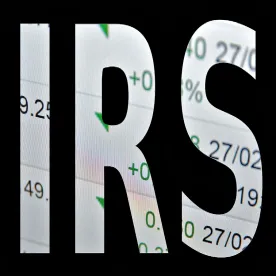Earlier this week, the IRS released updates on the status of its operations as the COVID-19 outbreak continues and also on the IRS’s new People First Initiative. In addition, Illinois extended its tax filing and payment deadline (but not the deadline to make estimated tax payments) to match the IRS July 15 deadline.
Current IRS Operational Status
Although the IRS is curtailing certain operations, it is continuing to provide mission-critical functions, including accepting tax returns and sending refunds. The following is a summary of the current status of IRS operations:
-
Offices closed. Many IRS offices have closed, and many IRS employees have begun working remotely.
-
In-Person assistance suspended. The IRS has suspended nearly all face-to-face contacts with taxpayers. All Taxpayer Assistance Centers have closed and all face-to-face TAC appointments have been cancelled. The IRS will try to resolve the needs of those taxpayers with TAC appointments already scheduled by phone instead.
-
Automated services functional. IRS automated applications remain available.
-
Telephone assistance available but limited. Although limited live telephone customer service is available, there are lengthy wait times. Similarly, there are likely to be extended wait times for the Practitioner Priority Service line.
-
Mailed correspondence subject to lengthy processing times. While the IRS remains able to receive mail, responses to paper correspondence will be very limited. Longer wait times should be expected, both during the COVID-19 shutdown and afterwards, as the IRS works through any correspondence backlog.
-
Statutes of limitations. The IRS will continue working with cases where statutes of limitation are pending, including requesting extensions of the limitations period where needed.
-
Office of Chief Counsel and Tax Court Case Management. The Office of Chief Counsel is continuing to work on resolving Tax Court cases in litigation and supporting other IRS operating divisions. Although Chief Counsel attorneys are not meeting with taxpayers or lawyers face-to-face, they remain available to discuss cases by telephone.
-
Office of Appeals. Appeals employees are also continuing to work on their cases. Conferences may be held by telephone or videoconference. Taxpayers should respond as promptly as possible to any outstanding requests for information from Appeals.
-
Taxpayer advocate service available but limited. The Taxpayer Advocate Service remains open to receive phone calls at local phone numbers, but walk-in services are suspended, and the toll-free central number is unavailable.
-
Tax-exempt sector functions operational. The IRS is continuing to accept and process applications for recognition of tax exemption for exempt organizations, rulings and determinations for employee plans, and closing agreements for municipal issuers.
What Do These Operational Changes at the IRS Mean for Taxpayers?
First, the IRS is continuing to process refunds. Taxpayers due a tax refund should consider filing their returns as soon as possible.
Second, because of expected delays in processing paper returns, it is advisable that taxpayers file and pay any tax due electronically. Taxpayers due a refund should indicate bank direct deposit information on their return to receive their refund directly.
Third, the IRS has postponed the due date for federal income tax returns and tax payments originally due on April 15 to July 15 (see our March 20 alert). This postponement is automatic, although taxpayers requiring additional time to file their returns beyond July 15 should file an extension request, which will extend the deadline through the fall.
Fourth, the July 15 income tax payment and filing postponement only applies to federal taxes. State taxes and returns may be subject to different deadlines. Some states (including California, D.C., Illinois, and New York) have already followed the federal postponement or undertaken postponements on their own initiative. Other states (such as Michigan) have not yet followed suit. However, even among states that have followed the federal postponement, some variability exists. For instance, Illinois, which on March 25 announced the extension of its state income tax filing and payment deadlines, specifically did not extend the deadline for making 2020 estimated tax payments (unlike the IRS, which postponed the first quarter estimated tax payment deadline).
People First Initiative
On March 25, the IRS announced its new People First Initiative (PFI). The PFI includes changes to audit and collection procedures, effective beginning April 1 and running through July 15. The following are the highlights of the new PFI:
Installment Agreements
-
Existing installment agreements. For taxpayers under an existing installment agreement, payments due between April 1 and July 15 are suspended. Those who currently are unable to comply with the terms of an installment payment agreement, including a direct deposit installment agreement, may suspend payments during this period if they prefer. The IRS will not default any installment agreements during this time, although interest will continue to accrue on any unpaid balances, as required by law.
-
New installment agreements. The IRS is encouraging taxpayers who are unable to fully pay their federal taxes that they can resolve their outstanding liabilities by entering into a monthly payment agreement.
Offers in Compromise (OIC)
-
Pending OIC applications. The IRS will allow taxpayers until July 15 to provide requested additional information to support a pending OIC. The IRS also will not close any pending OIC requests before July 15 without the taxpayer’s consent.
-
OIC payments. Taxpayers may suspend all payments on accepted OICs until July 15, although interest will continue to accrue.
-
Delinquent tax return filings. The IRS will not default an OIC for taxpayers who are delinquent in filing their tax returns for the 2018 tax year, although taxpayers should file any delinquent 2018 returns (and their 2019 returns) by July 15.
-
New OIC applications. The IRS is encouraging people facing a liability exceeding their net worth to consider using the OIC process.
Non-Filers Encouraged to File. The IRS is encouraging people who have not yet filed returns for pre-2019 tax years to file any late returns. The IRS notes that more than 1 million households that have not filed tax returns during the last three years are owed refunds, and there is still time to claim those refunds.
Field Collection Activities Mostly Suspended. Liens and levies (including seizures of personal residences) initiated by IRS field revenue officers will be suspended from April 1 through July 15, although field officers will continue to pursue high-income non-filers and perform other similar activities as required.
Automated Liens and Levies Suspended. New automatic liens and levies will be suspended from April 1 through July 15.
Passport Certifications to the State Department Suspended. The IRS will suspend new certifications to the U.S. Department of State for “seriously delinquent” taxpayers from April 1 through July 15. Seriously delinquent taxpayers are those who have an unpaid federal tax debt (including interest and penalties) exceeding $53,000, for which all administrative remedies have been exhausted and which is not currently subject to a collection alternative (that is, an installment agreement or OIC). If a seriously delinquent tax debt has been certified to the State Department by the IRS, the taxpayer may be denied a passport. The IRS is encouraging these taxpayers to submit installment agreement or OIC requests during this time.
Private Debt Collection Referrals Suspended. The IRS will not forward new delinquent accounts to private collection agencies from April 1 through July 15.
Audits Restricted. From April 1 through July 15, the IRS generally will not start new field, office, or correspondence examinations, except where deemed necessary to preserve applicable statutes of limitations. The IRS will continue to process refund claims where possible, without in-person contact.
-
In-person meetings suspended. Examination-related in-person meetings will be suspended, although ongoing examinations will continue remotely where possible. The IRS is encouraging taxpayers to respond to any IRS information requests as promptly as possible.
-
Unique situations affecting corporate and business taxpayers. Where corporate and business taxpayers wish to begin an examination while people and records are available and respective staffs have capacity, the IRS may initiate new examinations, with the understanding that COVID-19 developments may reduce activities for an agreed period.
-
Taxpayers should continue to respond to general information requests. The IRS is encouraging taxpayers to respond to any other IRS correspondence requesting additional information during the examination suspension period, as possible.
Earned Income Tax Credit and Wage Verification Requests. Taxpayers have until July 15 to respond to the IRS to verify that they qualify for the EITC or to verify their income. Taxpayers who are unable to do so should reach out to the IRS indicating the reason why that information is unavailable. Until July 15, the IRS will not deny these credits for a failure to provide the requested information.
Illinois Extends Income Tax Filing and Payment Deadline
The State of Illinois yesterday announced that it is following the federal government’s lead in extending the tax filing and payment deadline for all taxpayers from April 15 to July 15. This relief applies to all individual returns, trusts, and corporations and is automatic, requiring no action on the part of taxpayers. Penalties and interest will begin to accrue on any unpaid balances beginning on July 16.
It is worth observing that, unlike the federal government, which postponed until July 15 the deadline for estimated taxes for the first quarter of 2020, Illinois specifically did not extend the deadlines for making any estimated tax payments.





 />i
/>i

